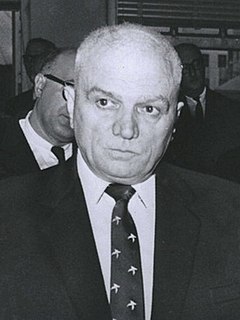A Quote by Peter Finch
I do not believe that with a fictional character you can force yourself too far away from yourself. There has to be some of you in it.
Related Quotes
Everyone saying, 'She'll bring back women's skating. This will be the one to watch at the Olympics.' And they say things that are so far away, but really, you have to bring it back in and look at the next competition, the next day, what you want to accomplish because if you get too far ahead of yourself, you can trip yourself up.
The libertarian approach is a very symmetrical one: the non-aggression principle does not rule out force, but only the initiation of force. In other words, you are permitted to use force only in response to some else's use of force. If they do not use force you may not use force yourself. There is a symmetry here: force for force, but no force if no force was used.
You have to expose part of yourself to create a character deep enough for readers to care about. You try not to because it's hard and at times shameful, but then when you read those pages over and you see they have no life to them so you throw them away and force yourself to be more honest. So I suppose the answer is I see myself in all my characters, in their best moments and in their worst.
Sometimes perception is almost more important than the skill level of an actor. And if you give too much away, you have nothing to take for yourself and put onscreen. If people feel like they know you too well, they won't be able to indentify with the character you're trying to portray. Or they'll feel that you're just playing yourself, and then you just become a personality actor. And that's the death of any actor.
You have a certain objectivity, as a member of the audience, and you can come away maybe being provoked into a certain discourse or a certain arena of questioning, regarding how you would deal with things that your character has to deal with. Whereas when you're doing a film, once you start asking, "What would I do?," you're getting the distance greater between yourself and the character, or you're bringing the character to you, which I think is self-serving, in the wrong way. The idea is to bring yourself to the character.




































